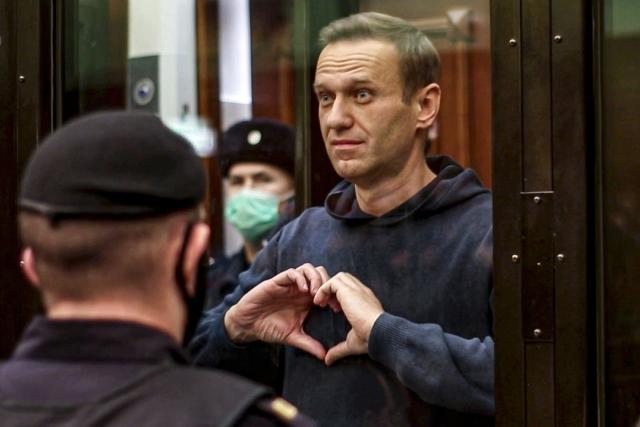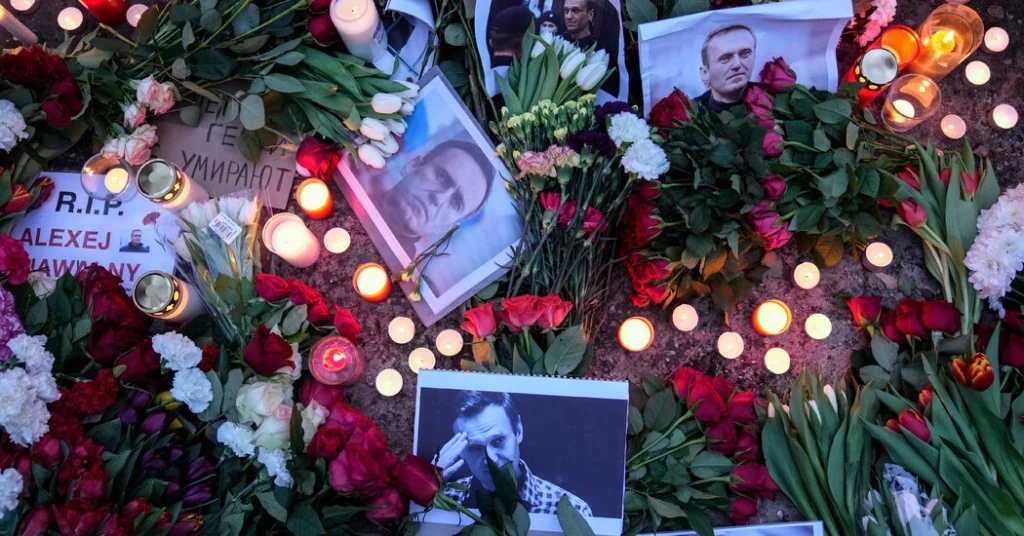The sudden death of Alexei Navalny, Russia’s most prominent opposition leader, has sent shockwaves through the international community. Russian authorities have attributed his death to an “irregular heartbeat,” a claim met with widespread skepticism. As the world mourns the loss of a key figure in the fight against corruption and authoritarianism, questions continue to swirl about the true circumstances surrounding his untimely demise.
Background: Who Was Alexei Navalny?

Alexei Navalny was more than just a politician; he was a symbol of resistance against the Russian establishment. Born in 1976, Navalny graduated from Moscow’s Peoples’ Friendship University and began his career as a lawyer before transitioning into politics. Known for his sharp critiques of President Vladimir Putin and his government, Navalny used his platform to expose corruption at the highest levels of Russian society. His rise to prominence was marked by numerous arrests, a near-fatal poisoning in 2020, and relentless persecution by the Kremlin.
The Timeline Leading to Navalny’s Death
Navalny’s imprisonment in early 2021 on charges widely regarded as politically motivated was a pivotal moment in his life. Sentenced to two and a half years in a notoriously harsh penal colony, Navalny’s health began to deteriorate rapidly. Despite repeated requests from his legal team and international organizations for better medical care, Russian authorities remained largely unresponsive. In the months leading up to his death, Navalny went on multiple hunger strikes to protest the conditions of his imprisonment, further weakening his already fragile health.
The Official Explanation: “Irregular Heartbeat”
Following Navalny’s death, the Russian government quickly released a statement attributing his demise to an “irregular heartbeat.” According to officials, Navalny had a history of heart issues, which allegedly led to his sudden death. However, this explanation has been met with widespread doubt. Medical experts have pointed out that Navalny’s previous poisoning and the harsh conditions of his imprisonment likely exacerbated any underlying health issues, raising suspicions that the official cause of death may be a cover-up.
Skepticism and Conspiracy Theories
The explanation of an irregular heartbeat has done little to quell suspicions about the true cause of Navalny’s death. Many of Navalny’s supporters and international observers believe that his death was the result of a second, more successful poisoning attempt by the Russian state. Navalny’s 2020 poisoning with a nerve agent had already proven the Kremlin’s willingness to silence its critics by any means necessary. The lack of transparency surrounding his death and the refusal to allow an independent investigation have only fueled these conspiracy theories.
The Global Impact of Navalny’s Death
Navalny’s death has had profound implications for both Russia and the international community. In response, several governments have imposed new sanctions on Russia, targeting those believed to be responsible for Navalny’s treatment and the broader human rights abuses in the country. The death of Navalny also raises concerns about the future of political opposition in Russia. With their most prominent leader gone, the opposition movement is at a crossroads, facing an uncertain future in an increasingly repressive environment.

Navalny’s Legacy
Despite his tragic death, Alexei Navalny’s legacy continues to inspire those who seek justice and transparency in Russia. Navalny’s relentless pursuit of the truth and his willingness to stand up to one of the world’s most powerful regimes have made him a symbol of resistance not just in Russia, but globally. His work in exposing corruption and advocating for the rights of ordinary Russians has left an indelible mark on the country’s political landscape. The ongoing efforts to honor his legacy through protests, advocacy, and international pressure demonstrate that while Navalny may be gone, his fight lives on.
A Death Shrouded in Mystery
The death of Alexei Navalny remains shrouded in mystery, with the official explanation of an irregular heartbeat failing to convince many. As the world continues to grapple with the loss of a key figure in the fight against authoritarianism, the need for transparency and accountability in Russia has never been more urgent. Navalny’s death serves as a stark reminder of the dangers faced by those who dare to challenge the status quo, and the lengths to which those in power will go to silence dissent.
Read More: 2024 Election Shift: Trump’s Power as a Change Agent Diminished
